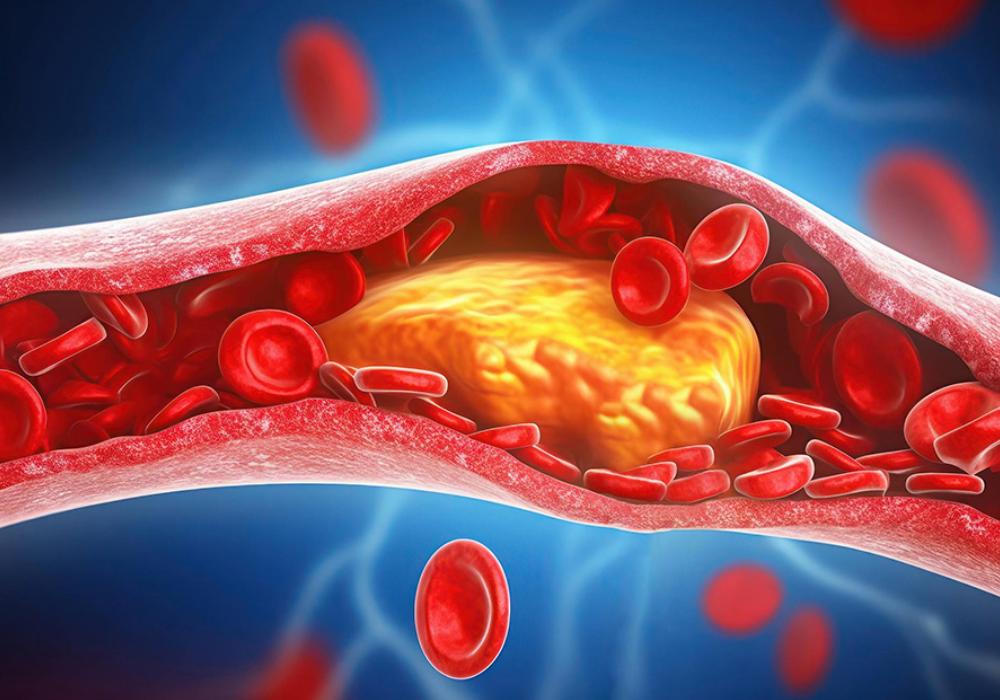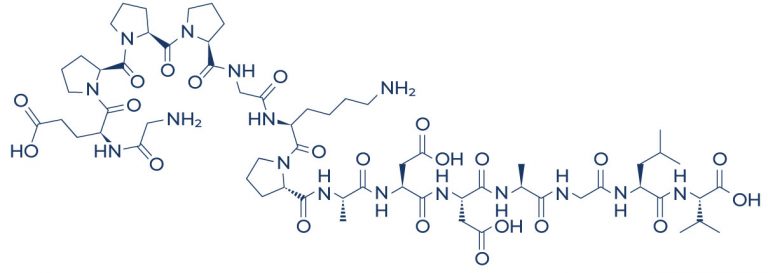Potential Benefits of BPC 157
BPC 157 offers a wide range of therapeutic benefits, including accelerating wound healing and soft tissue injury recovery, improving bone and joint health, enhancing digestive function, and normalizing blood pressure, potassium, calcium, and magnesium levels. It also strengthens the immune system, protects against NSAID-related side effects, reverses alcohol intoxication, and positively impacts mood, behavior, and cognitive health. Additionally, BPC 157 exhibits potential anti-cancer properties, making it a versatile peptide with various health-promoting effects.
- Accelerates wound healing [1-12]
- Accelerates healing of soft tissue injuries [13-28]
- Improves bone and joint health [29-32]
- Improves digestive health [33-45]
- Normalizes blood pressure [46-49]
- Corrects potassium imbalance [50-55]
- Corrects calcium imbalance [56]
- Corrects magnesium imbalance [57]
- Strengthens the immune system [58-63]
- Protects against NSAID toxicity and related adverse side effects [64-68]
- Reverses alcohol intoxication [69-72]
- Improves mood and behavior [73-77]
- Improves cognitive health [78-82]
- Exerts anti-cancer properties [83-86]
What is BPC 157?
BPC 157 peptides, also known as Body Protecting Compound 157, Body Protection Compound-157, or BPC-157, consist of a chain of 15 amino acids and originate from human gastric juices. A peptide is simply a compound consisting of two or more amino acids. BPC 157 is commonly known as a “stable gastric pentadecapeptide” because of its ability to maintain stability even within the environment of human gastric juice.
Your body already produces BPC-157 in very small amounts, which serves to signal certain body processes to happen and protect the digestive system. Researchers believe that if you get the super concentrated version of BPC-157 into your system, it has an extremely high level of regenerative effects.
Research on BPC 157 Benefits
A. Speeds Up the Wound Healing Process
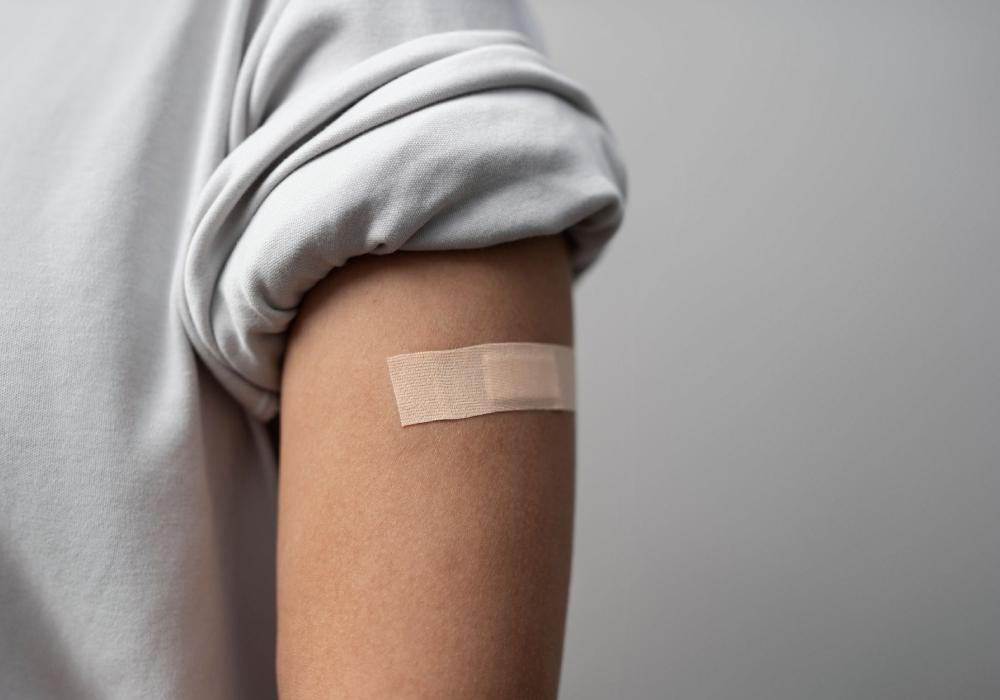
Numerous studies show that BPC-157 may help accelerate the wound-healing process through multiple mechanisms:
- In mice with burn injuries, BPC-157 was able to treat skin burns by significantly improving collagen fiber formation and decreasing the number of inflammatory cells. [1-4]
- In wounded rats, BPC-157 administration enhanced the formation of granulation tissues (new tissues that form on an ulcer or the healing surface of a wound) and new blood vessels. [5-6]
- A study found that BPC-157 was able to treat skin burns by enhancing wound healing in a model of alkali burn-induced skin injury. [7]
- In rats with intestinal lesions, BPC-157 administration significantly reduced damage to blood vessels and occlusion. [8-9]
- In rats with celecoxib-induced gastrointestinal, liver, and brain lesions, BPC-157 reversed the damaging effect of the drug. [10]
- In broiler chicks with severe damage to the tissues of the heart, liver, and spleen, BPC-157 administration at 10 micrograms/kg reduced organ damage. [11]
- In honeybees with severe damage to midgut wall layers, supplementation with sugar syrup containing BPC-157 decreased damage to the outer muscular coat. [12]
Discover the future of wound healing with innovative peptides. Explore the power of Wound Healing Peptides in accelerating recovery and regeneration. Unleash the potential of cutting-edge research for effective wound healing solutions.
B. Accelerates Healing of Soft Tissue Injuries
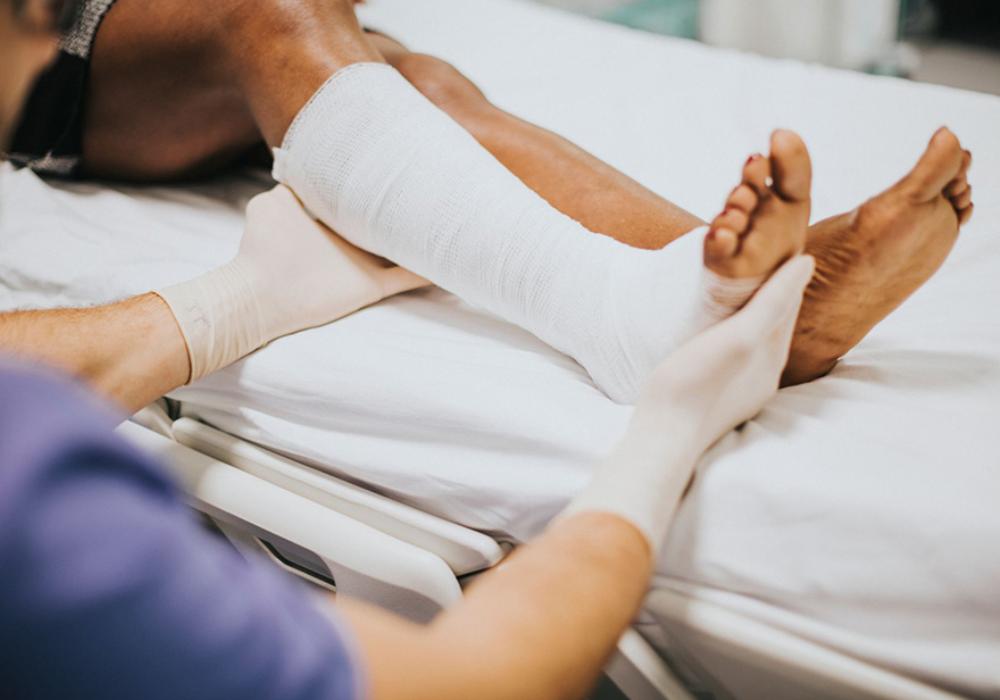
Soft tissue injuries refer to damage to the muscles, tendons, and ligaments. They can be partial or complete tears and may require surgical repair. Interestingly, BPC-157 has shown promise in preclinical studies for promoting the healing of tendon-to-bone damage, potentially accelerating the recovery process in musculoskeletal injuries:
- In rats with Achilles tendon injury, BPC-157 significantly improved healing, thereby eliminating the need for surgical repair. [13-15]
- BPC-157 promoted tendon outgrowth, cell survival, and cell migration in the injured soft tissues of rats, resulting in improved soft tissue healing. [16-18]
- In rats with muscle crush injury, BPC-157 induced faster muscle healing and full function restoration. [19-21]
- In rat tendon cells, pretreatment with BPC-157 showed outcomes close to the noninjured ligament as evidenced by faster granulation tissue formation, better organization of collagen, and reduced inflammatory cells, suggesting improved ligament healing. [22]
- In rats that had a surgical operation of the colon, BPC-157 treatment accelerated the healing time. [23]
- In rats with eye injuries, administration of BPC-157 eye drops successfully closed perforating corneal incisions. [24-25]
- In rats with injury to the sciatic nerve (nerve in the spinal cord), BPC-157 administration reversed the death of nerve cells and cyst formation and protected against damage to nerve structures. [26]
- A study also found that BPC-157 has the capacity to protect against cancer cachexia, a condition characterized by progressive loss of muscle and fat. [27]
- In rats with vessel injury, BPC-157 administration counteracted direct vein injury, blood clots, and prolonged bleeding. [28]
C. Improves Bone and Joint Health

BPC-157 plays a crucial role in maintaining bone and joint health. Studies show that BPC-157 exerts this beneficial effect through the following:
- In rabbits, BPC-157 significantly improved the healing of segmental bone defects by increasing bone density. [29]
- In rats, BPC-157 administration counteracted knee osteoarthritis and reduced cartilage lesions and joint pain, resulting in improved leg length and mobility. [30-32]
D. Improves Digestive Health
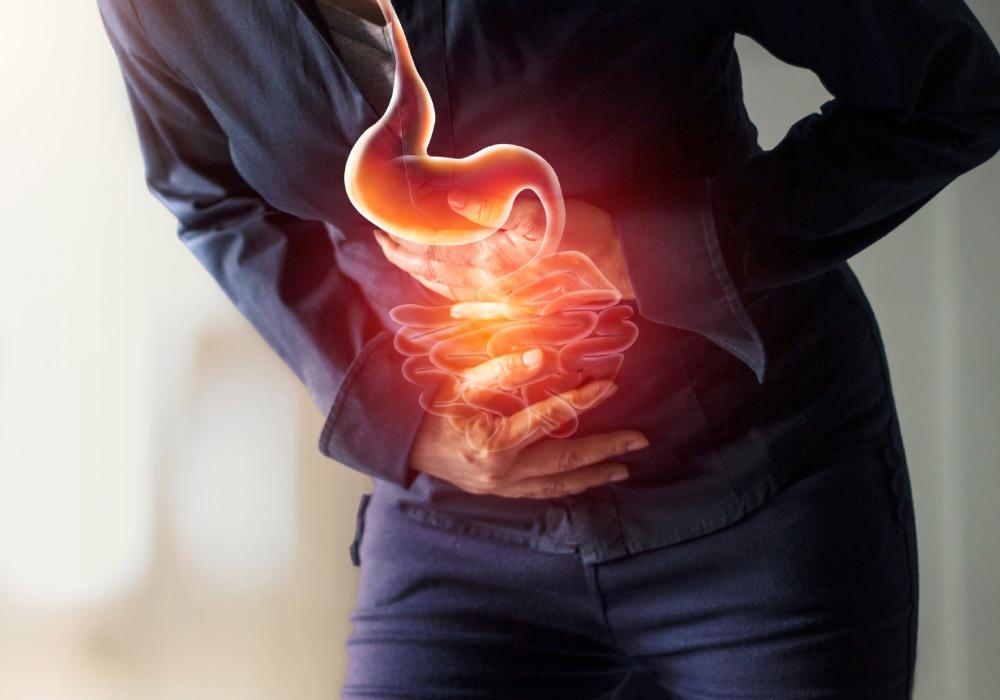
Current research suggests that BPC-157 may also help improve digestive function and overall digestive health through the following:
- In rats, BPC-157 prevented the development of stomach ulcers by protecting the layers of the stomach against the direct cellular damaging effect of ethanol. [33-34]
- BPC-157 fully interacted with the dopamine system (group of nerve cells in the midbrain) of rats to prevent mechanisms involved in ulcer formation. [35]
- Continuous administration of BPC-157 in rats with chronic gastric ulcers accelerated the rebuilding of stomach tissues and the formation of granulation tissues. [36]
- BPC-157 administration in rats was able to treat stomach ulcer by reducing gastrointestinal tract lesions. [37-40]
- In rats with inflammatory bowel disease, BPC-157 administration resulted in faster healing of the damaged colon and improved tendon, bone, and ligament healing by boosting the levels of Epidermal Growth Factor (EGF), Fibroblast Growth Factor (FGF), and Vascular Endothelial Growth Factor (VEGF). [41-45]
E. Normalizes Blood Pressure
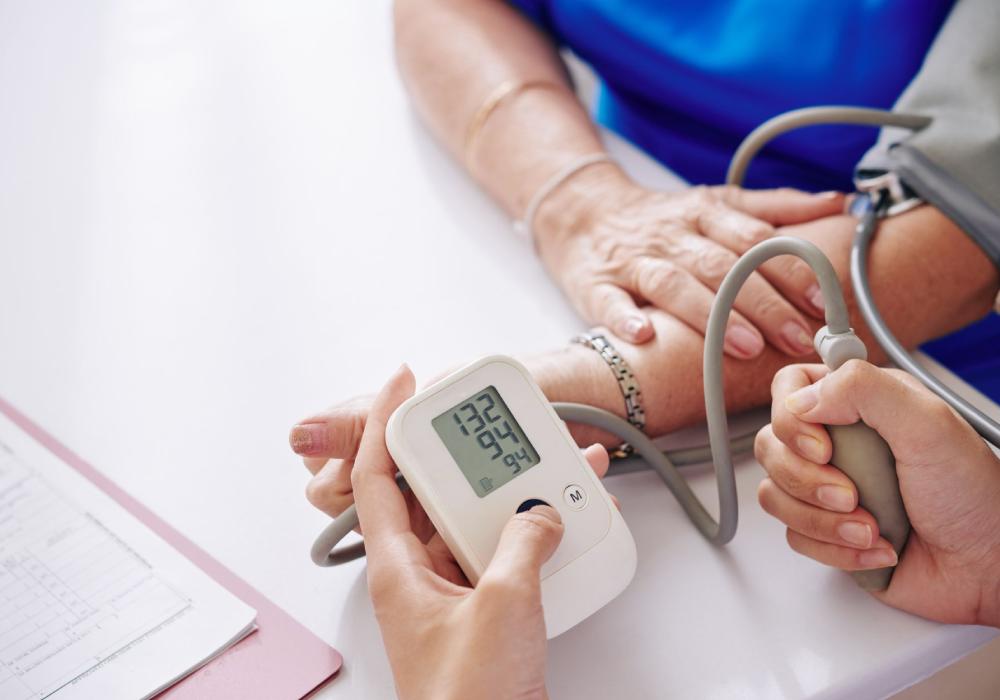
Studies show that BPC-157 can help normalize blood pressure through the following mechanisms:
- In rats with abnormally low blood pressure, BPC-157 exerted hypertensive effects by increasing blood pressure near the normal range. [46-47]
- In rats with high blood pressure, BPC-157 decreased blood pressure by causing blood vessels to dilate. [48-49]
F. Corrects Potassium Imbalance
Normal blood levels of potassium are crucial for optimum heart health. Abnormally low or high potassium levels can both lead to heart failure. Studies show that BPC-157 can help protect against heart failure caused by potassium imbalance:
- In rats with hyperkalemia (potassium overdose), BPC-157 therapy protects against heart failure by completely restoring the normal heart rhythm and electrical activities of the heart. [50-53]
- In rats with hypokalemia (potassium deficiency), BPC-157 therapy protects against heart failure by counteracting abnormal heart rhythm. [54-55]
G. Corrects Calcium Imbalance
Hypercalcemia (excessive calcium levels) negatively affects almost every organ system in the body. Evidence suggests that BPC-157 can counteract life-threatening conditions associated with high calcium levels:
- In rats, BPC-157 administration protected against organ failure induced by hypercalcemia via the reduction of calcium deposits. [56]
H. Corrects Magnesium Imbalance
High levels of magnesium in the blood (hypermagnesemia) can lead to life-threatening conditions including heart problems, breathing difficulties, and coma. Evidence found that BPC-157 can help reverse this electrolyte imbalance:
- In rats, BPC-157 administration counteracted the initial event leading to hypermagnesemia and the life-threatening effects of magnesium overdose. [57]
I. Strengthens the Immune System
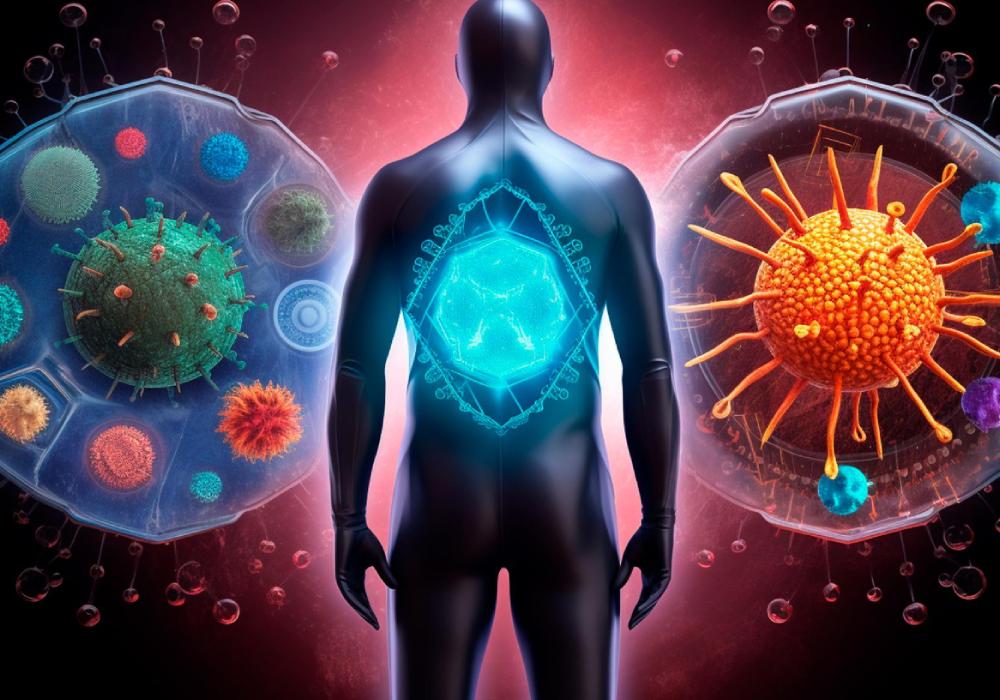
BPC-157 can help boost the immune system and protect against infection caused by viruses, bacteria, and other disease-causing microorganisms through the following important mechanisms:
- BPC-157 has been shown to have anti-inflammatory and regenerative effects on multiple target tissues and organs of rats. [58]
- In rats, BPC-157 increased the production of growth factors that fight infections such as vascular endothelial growth factors (VEGF), ultimately strengthening the immune system. [59-62]
- A cell study found that BPC-157’s inflammation reduction effects on the intestines are exerted through its antioxidant properties. [63]
K. Reverses Alcohol Intoxication
BPC-157 can help reverse the adverse effects of acute and chronic alcohol intoxication. Studies show that BPC-157 exerts this effect through the following:
- In mice, BPC-157 rapidly opposed the strongest disturbance presentations in acute alcohol intoxication such as loss of muscle reflex, no reaction to external stimuli, and low body temperature, as well as symptoms of alcohol withdrawal such as prominent seizures. [69]
- BPC-157 protected against both acute and chronic alcohol-induced lesions in the stomach, esophagus, and liver of mice. [70-72]
M. Improves Cognitive Health
An overwhelming body of research supports the benefits of BPC-157 on the brain:
- In rats with brain damage similar to Parkinson’s disease (PD), administration of BPC-157 appears to mitigate some of the damage. [78]
- In rodents with multiple sclerosis (MS), a chronic disease affecting the brain and spinal cord, oral BPC-157 administration decreased brain damage and clinical abnormalities. [79-80]
- In rats with traumatic brain injury, BPC-157 administration is associated with a reduction of unconsciousness and a lower prevalence of deaths. [81]
- In rats, BPC-157 counteracted ischemic/reperfusion injuries (tissue damage caused when blood supply returns after a period of insufficient blood circulation in the brain), resulting in improved memory, orientation, and motor capabilities. [82]
N. Exerts Anti-Cancer Properties
Therapeutic peptides such as BPC-157 are known to possess potent anti-cancer activity. Most animal studies assessing the therapeutic benefits of BPC-157 have shown that this therapeutic peptide helps fight cancer by:
- Inducing programmed cell death (apoptosis) of cancer cells [83-85]
- Assembling and forming pores that can disrupt the structures of cancer cells [86]
BPC 157 Side Effects
BPC-157 side effects are very uncommon. There have been some side effects associated with the use of this drug wherein the patient had one of the issues listed below at some point while being on BPC-157. However, the issue wasn’t’ confirmed to be caused by the treatment and could have been a coincidence and not related to the use of BPC-157. Despite this, it was listed as a side effect associated with BPC-157 even though these associated side effects are very uncommon.
Side effects associated with BPC-157 may include the following:
- Changes in blood pressure
- Changes in heart rhythm
- Dizziness
- Fatigue
- Hot flashes
- Nausea and vomiting
BPC 157 Dosage
The dosage of BPC-157 can vary depending on the individual and the condition being treated. In general, the prescriptions are based on body weight. However, a typical dosage range is 200-800 micrograms (mcg) per day. This can be taken as a single dose or divided into two or more doses.
For intramuscular injection of BPC-157, the dose is typically 16 units (16 mcg) per dose, twice a day. The injections can be given subcutaneously (under the skin) or intramuscularly (into the muscle).
For oral administration of BPC-157, the dose is typically 500 mcg per dose, twice a day. The capsules can be taken with or without food.weight
It is important to start with a low dose of BPC-157 and gradually increase it as tolerated. Some people may experience side effects such as nausea, headache, or fatigue at higher doses.
If you are considering using BPC-157, it is important to talk to your doctor first. They can help you assess the risks and benefits of this supplement and make sure that it is right for you.
Here are some additional dosage guidelines for BPC-157:
- For the treatment of acute injuries, a higher dose may be necessary.
- For the treatment of chronic conditions, a lower dose may be sufficient.
- The dosage may need to be adjusted depending on the individual’s response.

